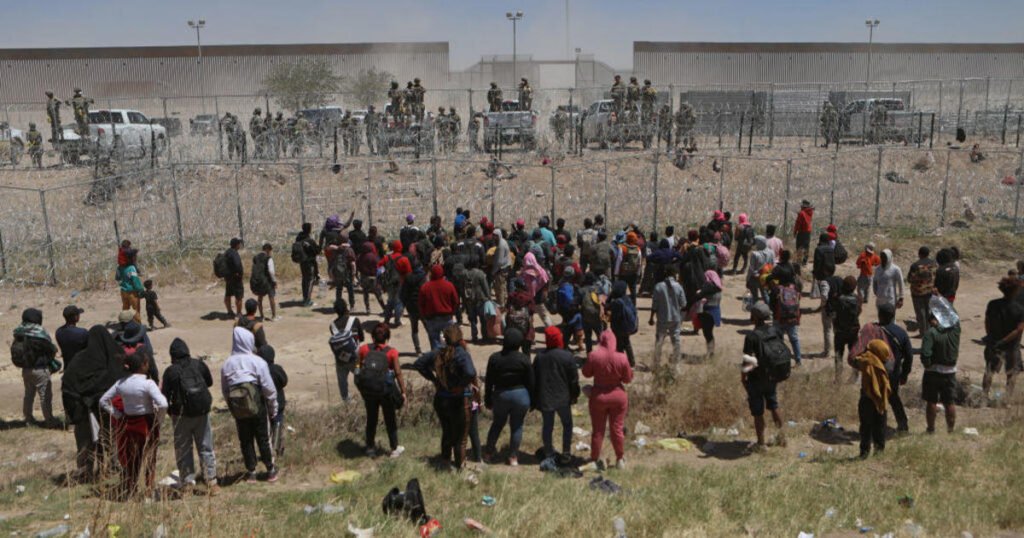The Biden administration is planning to announce a new regulation that will allow immigration officials to deport migrants who are ineligible for U.S. asylum earlier in the process. The regulation, set to be announced soon, will apply to migrants who ask for asylum after crossing the U.S.-Mexico border illegally and will instruct asylum officers to apply certain barriers to asylum during credible fear interviews. Those who pass these interviews can seek asylum, while those who fail can be deported. Migrants ineligible for asylum under U.S. law, such as those who pose a danger to public safety or national security, will be rejected and deported soon after crossing the border.
In addition to the upcoming regulation, President Biden is considering invoking a broad presidential authority, 212(f), to enact a broader restriction on asylum. This authority allows presidents to suspend the entry of migrants deemed detrimental to U.S. interests. While a final decision has not been announced, this potential move aligns with a policy shift by the Biden administration towards more restrictive asylum rules. Previous actions include disqualifying migrants from asylum if they enter the U.S. illegally after failing to request humanitarian protection in a third country, like Mexico. However, the administration has also expanded channels for legal migration, including a phone app for scheduling border crossing processing times and a program for sponsored migrants to fly to the U.S.
The Biden administration’s efforts to restrict access to the U.S. asylum system come amidst a spike in migrant applications in recent years, particularly at the southern border. Record levels of apprehensions, reaching over 2 million in each of the past two years, have led to a political backlash and increased enforcement measures. The recent drop in migrant crossings, over 40% this year, can be attributed to increased deportations, Mexico’s efforts to deter migrants, and actions by Texas state officials, such as setting up razor wire along the border. While the upcoming regulation and potential 212(f) order may not impact large numbers of migrants, they represent a shift in Mr. Biden’s earlier promise to “restore” the asylum system.
Representatives for the Department of Homeland Security and the White House have not yet commented on the upcoming regulation or potential 212(f) order. The administration’s consideration of more restrictive asylum rules reflects the challenges posed by record levels of migrant apprehensions and the need to address political and enforcement concerns. As migrant crossings continue to fluctuate and migration policy remains a contentious issue, the Biden administration’s approach to asylum will likely be closely watched and debated in the coming months.

